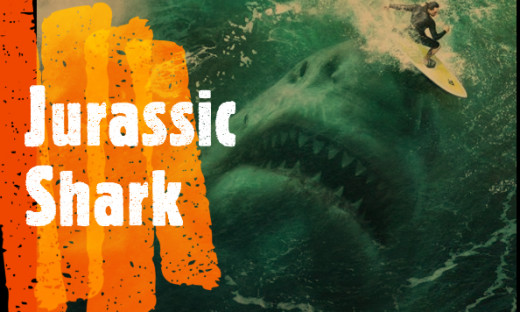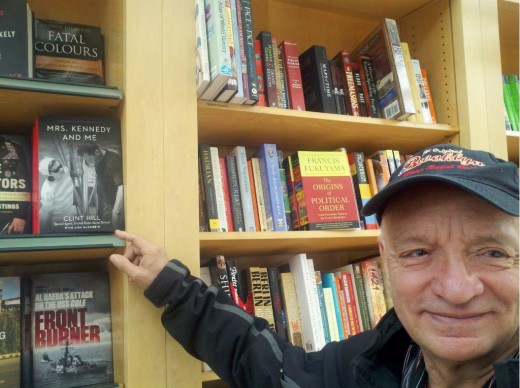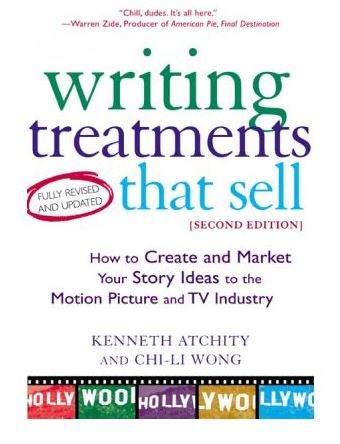How to Write and Promote a Bestselling Book Into a Movie

Best Seller New York Times
Some time ago, I met up with Ken Atchity, whose agency worked with Steve Alten and published his New York Times bestseller MEG. The book developed into a movie starring Jason Statham and directed by Eli Roth. It was written for the screen by Dean Georgaris, Jon Hoeber, and Erich Hoeber.
His MEG series of books are international bestsellers in different countries.
Recently, I hooked up with Steve Alten and asked him how it was going. He is riding on his series of books about the Jurassic shark. Though Alten parted ways with Atchity ten years ago, he is in a whole new realm with MEG going into production and having a significant blockbuster movie based on your first book.
I asked Alten how has the journey to get MEG into film production taught him about Hollywood. He said, “It takes time and the right connections... and some luck and persistence to get a tentpole movie made.”

Million Dollar Ideas
I interviewed Atchity before MEG hit the bookstores. What interested me about the interview is he boasts that he makes multi-million dollar deals. That is a pretty powerful statement. Investing in making sure you nail the contract and not end up on the debt news.
He formed AEI as a production company in 1989 and as a literary management company in January 1996. Atchity was literature and creative writing (Occidental College and at UCLA's Writer's Program.)
After undergraduate work at Georgetown and graduate work at Yale, Atchity became a comparative literature professor, creative writing, and journalism. He taught at Occidental College and UCLA Writers Program from 1970-87 and received major scholarly grants from prestigious foundations such as the Mellon Foundation.
In addition to several books, Atchity wrote for major scholarly journals worldwide, publishing books on Spenser, Homer, and Italian Literature. He was a Fulbright Professor at the University of Bologna, Italy. He was the founder and co-editor of Dreamworks and Contemporary Quarterly. He published articles, poems, songs, book reviews (since 1972 for The Los Angeles Times) and made numerous radio and television appearances.
In the late 1990s, I met with Atchity while leisurely sipping a merlot glass at the Cyberspace Cafe. I bought Ken's second glass and coaxed him into an informal Q & A interview.

Selling a Story
KENNA: So we can get an understanding of how AEI works, tell us a bit of how you nurtured Steve Alten's MEG to a bestseller and then into film development. How long did it take AEI to coach and hone Steve's concept and research to a bestselling format?
ATCHITY: Nine months for the Disney sale, two more months before the Bantam-Doubleday sale. We recognized Steve's concept and research as having bestselling potential (alone among the 39 companies he submitted his original manuscript). WE COACHED HIM through AEI's Writers' Lifeline by honing his techniques and structure to create a marketable book.
KENNA: On AEI's website, it says, "We are a story company first and foremost." What does that mean?
ATCHITY: It means a writer shouldn't worry about what form his story is in--we're interested in the story itself, whether it's ready or unready, script, novel, nonfiction, or play.

Submitting a Project
KENNA: How many story submittals do you get per day or week? Out of those, how many do you consider worth going through the AEI process?
ATCHITY: We get approximately 250 submissions, including queries, per week at this point. We reject 230 outright and perhaps consider 20 for the AEI process. About once every month, we find one that's ready as-is and immediately sign it.
Myth and Legend Stories
KENNA: Do you look for "uniqueness" or "derivative" in a story idea? Why?
ATCHITY: We look for familiarity, uniqueness, an old story told in a surprisingly new way.
KENNA: Is there a formula AEI follows to put a package deal together? Or, is each "great story" formulated differently?
ATCHITY: The formula is the ancient formula of all effective storytelling described in A WRITER'S TIME under "Myth and Story" and "The Elements of Fiction and Drama."
Business Operations
KENNA: I was fortunate to meet you in Northern California to attend one of your talks. I understood that you are more of a producer than a literary agent. What part of the business are you involved with the most?
ATCHITY: That is what exactly distinguishes me and AEI--we do both. All the time. I'm in New York now, where I spend roughly half my time in the book world--the other half in L.A., where my partner Chi-Li Wong concentrates about 75% of her energy towards motion pictures.
What do you think?
Do you have an unpublished book?

Literary Analysis
KENNA: How has your teaching and literary background assisted you in manufacturing projects?
ATCHITY: My study and teaching of comparative literature, myth, and creativity were the perfect preparation for what I do now. All focused on how humans weave and express their stories, from the oral tradition that produced the Iliad and the Odyssey to the intricate novels of William Faulkner and the concentrically organized perfection of Dante's Commedia.
Writer Mistakes
KENNA: Are you more concerned about plot-driven ideas than character-driven ideas?
ATCHITY: No, they're equally important.
KENNA: What is the number one mistake writers do that impedes their chance for success?
ATCHITY: Expressing their distrust of themselves and distrust of the industry they're trying to be recognized.
Writer's Barrier
KENNA: You mentioned the one mistake writers make, which impedes their chance for success: "distrust in themselves and the industry," how does AEI assist a writer through this barrier?
ATCHITY: We usually don't. When we sense the distrust, we say "life is too short" and move on.
I am not sure what Ken Atchity is up to these days. I googled him and discovered he is still writing books.
One concept he told a group of writers is everybody has ideas. It's the ones who know how to put those ideas down on paper, which will be successful. He encouraged us to write and put our words down on paper because our vision will not become real if we don't start writing.
© 2016 Kenna McHugh





